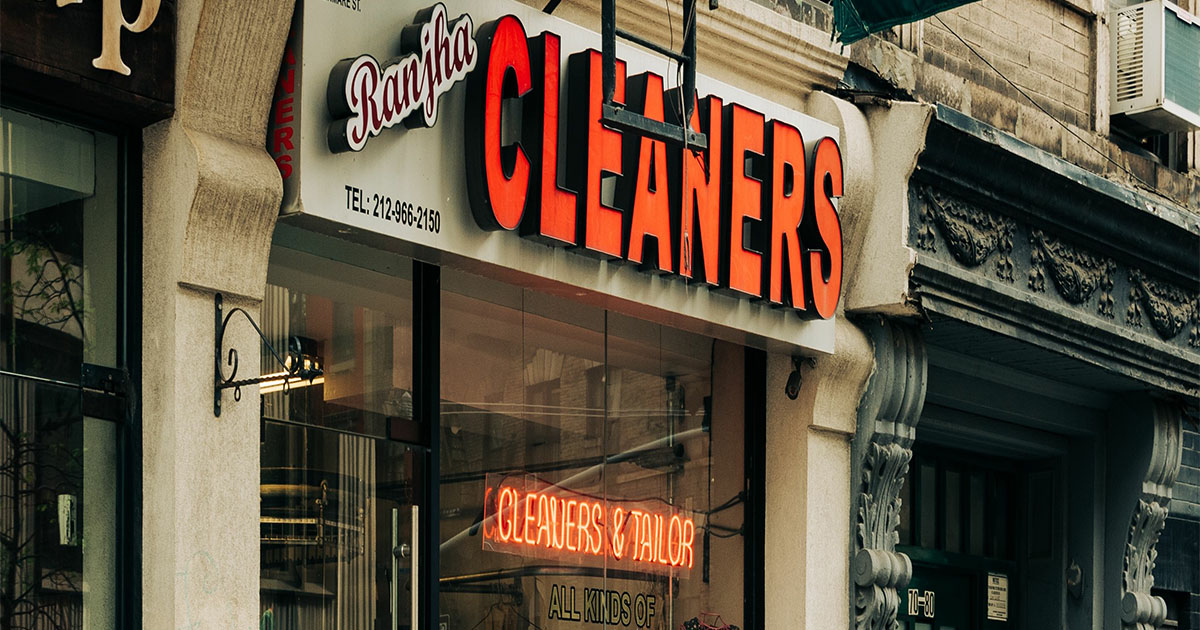Many drycleaners engaging an Insurance Archaeologist fall into one of three categories: 1. They worry their property may be contaminated due to operations taking place prior to their (now green) operation; 2. They know there is likely contamination onsite, but they’re not ready to deal with it because it’s expensive; or 3. They’re not being asked to investigate it, so it’s being ignored.
If you fall into one of those categories, you’re in the right place.
Let’s start at the beginning and hit the high points.
The official definition of Insurance Archaeology is: “The practice of locating and retrieving the proof of the existence, terms, conditions, and limits of lost or destroyed insurance policies.” We often liken it to ‘genealogy with an insurance bent’.
PolicyFind was conceived to work for dry cleaners. Over twenty years ago, our CEO, Steve Henshaw, assembled a team of investigators, geologists, and engineers to work with and for drycleaners, with a keen focus on marrying two concepts: cleaning up contaminated properties and finding funding to ‘turn liabilities into assets’.
Insurance Archaeology can be (and maybe should be) performed before there’s a known issue. We believe in two basic tenets: helping our clients protect their investment and leaving the environment better than we found it. The fact is, being a business or property owner is, at its core, an investment. It may be your savings plan, or it might be your children’s livelihood one day. If drycleaning operations existed at your property dating back decades, you owe it to your future self to protect your investment by investigating all funding sources available to you if you believe harmful chemicals may have been used in prior operations.
Steve Henshaw was one of the first to understand the immense value of historical general liability insurance policies as it relates to environmental matters. When leveraged, these historical insurance policies are assets that can be worth millions of dollars in legal defense, cost-sharing of defense, and settlements. More importantly, Henshaw understood these occurrence-based policies were worth more than their weight in gold when uncovered and applied properly and that most business owners would have purchased these policies to respond to everyday incidents – like slip and fall accidents.
The types of policies PolicyFind hunts for, most frequently, are those occurrence-based general liability and umbrella/excess policies. More specifically, in most states throughout the country, PolicyFind is tasked with locating policies issued prior to the 1985/1986 time period because that is when policies started to incorporate the Absolute Pollution Exclusion.
How is it possible new claims can still be made against old policies? First, you should know that these policies never expire. ‘Occurrence-based’ policies—are those policies that cover losses if the damage happened during the time the policy was in effect, regardless of when a claim is filed.
PolicyFind works with drycleaners across the nation, day in and day out, to locate, quantify, and bring to bear these decades-old policies to pay for clean-up and remediation. Because no vault or database exists in which old insurance information is held, we conduct interviews, put boots on the ground to physically search files, and develop and follow ‘leads’ to reconstruct insurance coverage portfolios. This, along with our knowledge of state-by-state case law relating to ‘long-tail’ environmental matters and our knowledge of how the insurance industry operates, is what gives our policyholder clients access to more funding options when facing large and expensive environmental clean-ups.
The best way to accurately assess whether insurance archaeology is the right option for you is to speak with an insurance archaeologist who can learn more about your situation and advise you accordingly.
PolicyFind’s experienced insurance archaeologists offer our future clients a confidential consultation to determine potential paths forward to cost recovery. Contact PolicyFind.

